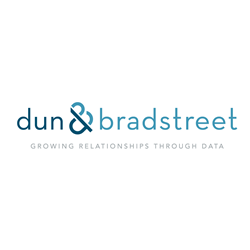Do you know where your prospects are?  More importantly, do you know what they’re doing and what they want from you?
More importantly, do you know what they’re doing and what they want from you?
More automated and digital-first B2B purchasing processes are here to stay. As a result, data has never been more important for you – or for your future clients. Data-driven and digital tactics can facilitate top-of-the-funnel prospecting, help relationships grow and make the purchasing experience more seamless for everyone involved.
As data grows in importance for you and your prospects, so too do concerns about the privacy and regulation. But that’s not a reason to turn back – it’s more of a reason to get one step ahead and ensure you’re compliant before you’re running behind.
In this changing environment, stay on your front foot by knowing these five things about your prospects.
Prospects Have Gone Digital – and There’s No Turning Back
The nature of B2B customer relationships has fundamentally changed due to the prevalence of technological and digital integrations in the buying process. In fact, Gartner predicts that, by 2020, the customer will manage 85% of its relationship with an enterprise without interacting with a human.
As traditional tactics such as outbound phone calls and emails become increasingly ineffective and customers delay interaction with salespeople, marketers are turning to approaches such as account-based marketing (ABM) to drive better alignment with the digital customer journey. Which brings us to the next point…
They’re Receptive to ABM
Account-based marketing broke into the mainstream over the past couple of years, and this year we’re well beyond the tipping point. In fact, 97% of B2B marketers believe that ABM has a higher ROI than other marketing initiatives.
ABM has significantly changed and improved the buying process for B2B customers and prospects. For marketers, shifting to an ABM strategy can help identify the biggest areas of growth in sales and marketing and keep the focus on winning new business. However, it takes a deep understanding of data and overall team cohesion; gaining deep account insights to support the creation of account-specific messaging is crucial. Sales intelligence solutions can help companies align sales and marketing teams around the right data points, which is critical for ABM success.
They Want Content and Communications Relevant to Them
Despite the data, technology, and resources available to marketers, only half of the customers surveyed for the 2017 State of Sales Acceleration Report feel their communications have improved in the last year. Real-time, connected data is the key to creating relevant and personalized content and communications. In addition, this highly targeted data approach helps grow customer relationships by connecting and aligning all market activities, from segmentation and targeting to content development, to nurturing and closing.
Using intelligent, data-driven and real-time insights lead to a more connected customer view and more targeted communications – and businesses are demanding this from their partners.
They Want a Frictionless Purchasing Experience
Creating a faster path from prospect to a profitable customer is possible through the use of data and analytics. Moving from traditional prospecting solutions to “sales acceleration” can guide interactions with prospects and customers across the full customer journey, delivering refined and connected information to create a more seamless experience for customers.
By connecting data across an organization, and feeding it into the daily workflows (like a CRM, for instance), the entire business gains a complete and shared view of the customer, meaning each department knows all actions the customer has taken with the business and can act accordingly, without overlap or duplication. This presents a more consistent and thoughtful experience for the customer.
Data Regulations Apply to Them, Too
With the rise of new regulations like GDPR around how companies access and utilize data, prospects are growing more concerned about their privacy and businesses are struggling with how to comply with these rules. Even in a B2B environment, there are steps that can be taken to ensure privacy regulations are being met. When working with a data provider, businesses should consider —
- The data methodologies their data provider follows
- The downstream collections their agencies follow
- The way and where they store the data
Ensuring proper guidelines will give your customers confidence and an understanding that your business is taking the necessary steps to protect information and adhering to current regulations.
The B2B prospect is a complicated and sometimes elusive entity. Knowing your prospects better than your competitors can not only give you an advantage, but it can ensure optimal relationship building and a seamless purchasing experience for all involved. Leveraging the best data available and analyzing it with your prospects in mind will keep you ahead of the game – and ahead of your competition.
Also Read: Want to Boost Revenue? Start by Aligning Marketing and Sales











